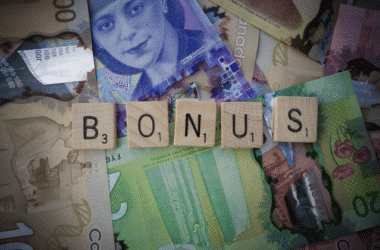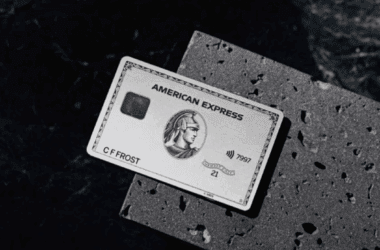The counterpoint is our monthly column, dedicated to having a look at a contrarian view at some of the commonly held beliefs in the miles and points space. Last month, I wrote about how our thinking about the value of flexible points programs may be skewed. Today, let’s have an in depth look at Prime Day and what ‘deals’ may be in store for you!
A ‘new’ Shopping Holiday
There’s no denying that there are always some great deals every year. They may not always be on Prime Day. Imagine what day this is? It’s another shopping holiday created by Amazon to give you that feeling that it’s another holiday. No, it’s not Thanksgiving, it’s not the 4th of July, but it’s Prime Day.
Reference Pricing

Watches at 50% off! Headphones at 40% off!! Wow, these deals sure sound to be great. However, reference pricing is a common trick run by companies that want to trick you into spending more. They increase the price of a product during a non-sale period and then offer it at a ‘discount’. By doing this, they intend to create the illusion in the buyer’s mind that this is really a great deal when it isn’t always the case.
Artificial Scarcity
While shopping online, we often see the sign ‘only 5 left’ or ‘running out of stock’ sign. It’s the same trick used to promote ‘limited time’ credit card offers for us miles and points aficionados.
From a marketing psychology perspective, these phrases tend to trigger certain impulses in our brain that create a sense of urgency. These words are carefully crafted and placed right next to the product information in order to make you hit the ‘Buy Now’ button. Given how sophisticated the tech behind online shopping is, I’ve seen these limited time deals come back sooner if not later.
Impulsive Behavior
Think about walking past a coffee shop and experiencing the aroma of coffee. Think about walking by an ice cream store in the peak of summer. Many of us would impulsively walk in and make a purchase. Online shopping is the same process on steroids. Impulsive online shoppers buy a lot more than the average customer who walks into a store. Why? Because there are fewer barriers. No lines to stand in. No aisles to walk by. Shopping feature like ‘one-click ordering’ make it even better, for the store selling it. 🙂
Social Media FOMO Effect
A lot of online deals get a lot of traction on social media, and rightly so. This creates the FOMO effect and a lot of people end up buying stuff that they don’t really wan’t, but buy it anyway. Not everyone can resist the allure of an enticing deal, coupled with the fear of missing out on what their peers are buying.
The Pundit’s Mantra
The core idea of writing this is not to hammer Prime Day or cast any aspersions about what Amazon is doing. Like any other company, it’s running a profitable business and is accountable to its shareholders. However, as a consumer, it’s our job to do what’s in our best interest. I use a simple method to stop myself from getting lured into overspending on days like Prime Day. As soon as some deal pops on my screen, I immediately try to classify it as a need or a want. Once that is done, I then try to classify the degree of the need or the want. Do I really want it that bad? Do I think this deal may come back later?
So, by all means, enjoy Prime Day. It’s your money and I trust your sagacity to spend it. My goal of writing this article was to make my readers aware about the business side of it. While I hope you find the best deals on Prime Day, I’d love it even more if you get the things that you need and don’t overspend.
What do you think about the deals on Prime Day? Do you think it’s worth paying a lot of attention? Let us know in the comments section.
Never miss out on the best miles/points deals. Like us on Facebook to keep getting the latest content!











The best tool against Reference Pricing on Amazon is camelcamelcamel, you can see what an item actually sells for over time
Good post. I would add that many retailers do this sort of thing. Kohl’s is one of the worst. Also, we will be hammered by this for 2 days in addition to the media hype as many bloggers also generate affiliate marketing profits from this. I don’t begrudge them of this unless they cross certain borders. LIke, for example, a travel blogger telling me how awesome a new vacuum cleaner deal is on Amazon instead of say a suitcase, etc.
Thanks for reading. Retailers use all sorts of tricks to sell as much as they can. It’s their job to do so. I can’t speak for other bloggers but as you correctly said, it’s fine as long as they don’t cross a certain line. Where that line should be drawn is always subjective though and depends on each individual.